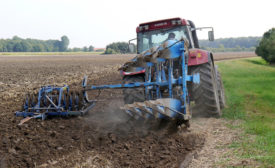News
A NIOSH Science Blog post
Embracing partnerships to translate research into practice in agriculture
Launching the national ROPS rebate program
July 13, 2017
Never miss the latest news and trends driving the safety industry
eNewsletter | Website | eMagazine
JOIN TODAYCopyright ©2024. All Rights Reserved BNP Media.
Design, CMS, Hosting & Web Development :: ePublishing










